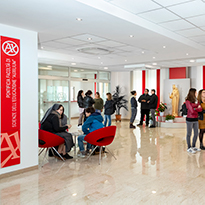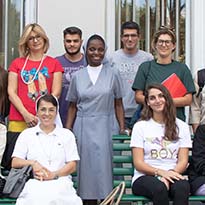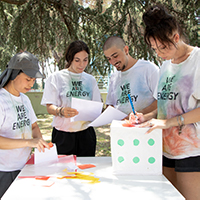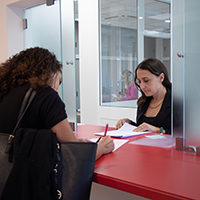PresentationBack to top
The Master's Degree or Licentiate course in Educational Psychology trains psychologists who are experts in psychopedagogical operations, both within and outside schools. It enables graduates to offer consultancy and guidance to individuals, groups, and institutions involved in educational and school processes; analysis, planning and management of both human and environmental resources, aimed at prevention and finding solutions for individual and group issues.
Learning outcomesBack to top
At the end of the course of study, graduates must demonstrate:
- to have in-depth and critical knowledge of psychological science, research methodologies and psychological research tools related to the field;
- to have acquired analytical and critical judgment skills regarding psychological, interpersonal, social and environmental factors that characterise psychological development and educational interaction over people's entire lifespan;
- to be able to properly utilise and evaluate psychodiagnostic tools for the integration and support of those working in social/educational settings, for the prevention and treatment of difficulties at school and in services for children, adolescents and families;
- to be able to plan and coordinate intervention programmes aimed at the promotion of the psychological wellbeing of individuals and their holistic development;
- to know how to plan and carry out psychological counselling and guidance in order to prevent emotional, interpersonal and social issues along with promoting cognitive development in social and educational contexts;
- to be able to implement measures to promote parenting skills;
- to be able to communicate with the various stakeholders in a clear and unambiguous manner, in accordance with the ethical principles of the psychologist profession;
- to know and use a foreign language correctly.
Career opportunitiesBack to top
At the end of the course graduates will be able to offer the following activities:
- consultancy and support, both individually and jointly, in social and educational institutions and schools, to teachers, to individuals during their developmental years and to parents, in both the public and private spheres;
- training for teachers, social workers and parents in order to strengthen the resources for developing individuals;
- psychological assessment, both diagnostic and preventive, through the application and interpretation of psychodiagnostic techniques to improve communication and educational processes;
- educational and vocational guidance for students and parents;
- prevention of difficulties encountered in schools and support for teachers and parents;
- supporting processes of development, learning and socialisation both within and outside school.
Those obtaining the Master's Degree in Educational Psychology, after taking the State Exam, can enrol in Section A of the Register of Psychologists, allowing them to freely practice professionally and offer consultancy in public and private institutions. They may also move onto specialisation courses, Level II Master's courses and PhDs, depending on the prescribed regulations for admission to these courses.
Teaching and learningBack to top
The Master’s Degree Course covers two years, during which 120 ECTS credits must be obtained. To obtain the necessary credits to graduate students must carry out the required training activities (courses, seminars and workshops) and an internship, as stated in the study programme.
Programs of previous years
Degree recognitionBack to top
The Licentiate and PhDs of the Pontifical Faculty of Educational Sciences «Auxilium» are of pontifical right.
For civil purposes, the degrees are valid in accordance with the laws in force in the various countries and the particular rules of each University.
Admission requirementsBack to top
They can enroll in the Master's Degree (or Licentiate) Course those who have obtained the Bachelor's Degree (or Baccalaureate) in Developmental Psychology and Educational Sciences, or a Degree recognized as equivalent with accreditations properly assessed.
RegistrationBack to top
CoordinationBack to top
JEAN BAPTISTE Marie-Judith
NDERI Lucy Muthoni
STEVANI Milena
STRAFFI Elisabetta
VERGARI Maria Grazia






